When Houston’s relentless summer heat pushes temperatures above 95°F for weeks on end, your air conditioning system becomes more than a luxury—it’s a lifeline. Yet many homeowners ignore subtle warning signs until their AC fails completely, leaving them sweltering in triple-digit heat while facing emergency repair costs that can exceed $1,500. Recognizing early warning signs that your residential AC needs repair can save you hundreds of dollars and prevent the discomfort of a complete system breakdown during peak cooling season.
At 75 Degree AC, our certified technicians have serviced thousands of Houston homes since 2016, and we’ve seen the same preventable issues repeatedly. According to the Energy Information Administration, residential cooling accounts for nearly 17% of total electricity consumption nationwide, making system efficiency crucial not just for comfort but for your monthly energy bills. This comprehensive guide reveals the seven critical warning signs every Houston homeowner should recognize, helping you protect your investment and maintain year-round comfort.
Why Early Detection of AC Problems Matters in Houston’s Climate
Houston’s subtropical climate creates unique challenges for residential air conditioning systems. With average summer temperatures reaching 94°F and humidity levels often exceeding 70%, your AC works harder and longer than systems in most other regions. This constant demand accelerates wear on critical components, making early problem detection essential.
According to HVAC industry data, homeowners who address minor AC issues promptly spend 40% less on repairs over their system’s lifetime compared to those who wait for complete failures. In Houston’s climate, this proactive approach becomes even more critical—a small refrigerant leak detected in spring might cost $200 to repair, but the same leak discovered during a July heat wave could result in compressor damage costing over $2,000.
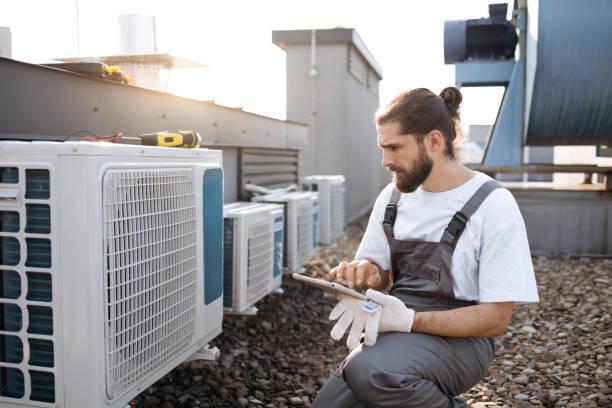
The 7 Critical Warning Signs Your Residential AC Needs Repair
1. Unusual Noises Coming From Your AC Unit
A properly functioning air conditioning system should operate with minimal noise—typically just the gentle hum of the compressor and fan motors. When your residential AC needs repair, it often announces the problem with distinctive sounds that trained technicians can diagnose immediately.
Grinding or scraping sounds typically indicate worn motor bearings or damaged fan blades. These components endure significant stress in Houston’s demanding climate, and failure to address grinding noises quickly can lead to motor replacement costs exceeding $800.
Banging or clanking noises suggest loose internal components, possibly due to thermal expansion and contraction from Houston’s extreme temperature variations. Our technicians frequently discover loose bolts, damaged compressor mounts, or debris in the outdoor unit causing these sounds.
High-pitched squealing or whistling often indicates belt problems in older systems or refrigerant leaks in newer units. In Houston’s high-humidity environment, belt deterioration accelerates, and refrigerant leaks become more common due to corrosion from moisture exposure.
2. Weak or Inconsistent Airflow Throughout Your Home
Proper airflow distribution is crucial for maintaining comfort in Houston’s multi-story homes and sprawling single-family residences. When airflow becomes weak or uneven, your system works harder to maintain set temperatures, increasing energy consumption and accelerating component wear.
Common causes of airflow problems include clogged air filters, blocked return vents, or ductwork issues. In Houston homes, air filters typically require replacement every 30-60 days during peak cooling season due to increased system runtime and higher outdoor particle concentrations.
Ductwork problems are particularly common in Houston’s older neighborhoods, where settling foundations can disconnect or damage air ducts. According to Energy Star, leaky ducts can reduce system efficiency by up to 30%, significantly impacting your energy bills during Houston’s extended cooling season.
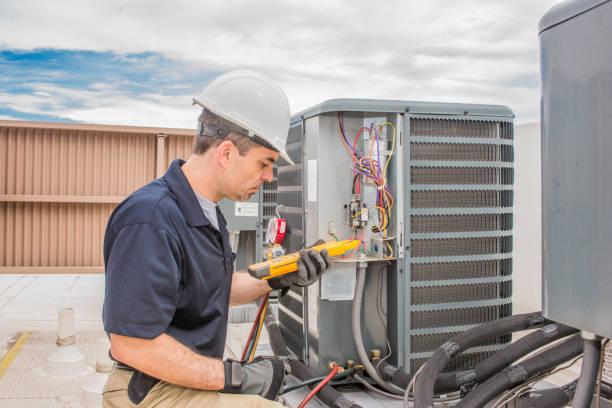
3. Rising Energy Bills Without Increased Usage
Houston homeowners should expect higher electricity bills during summer months, but sudden spikes without corresponding usage increases often signal AC efficiency problems. According to CenterPoint Energy data, Houston residents typically see 60-80% increases in summer electricity bills compared to winter months, but gradual increases beyond this range warrant investigation.
A failing AC compressor, low refrigerant levels, or dirty evaporator coils can reduce system efficiency by 15-25%, translating to $50-150 in additional monthly costs for average Houston homes. Over a full cooling season, these efficiency losses can cost homeowners $300-800 in unnecessary electricity expenses.
Our team at 75 Degree AC regularly helps Houston homeowners identify efficiency problems through comprehensive system diagnostics. In many cases, simple maintenance procedures like coil cleaning or refrigerant level adjustment can restore optimal efficiency and reduce monthly energy costs.
4. Ice Formation on AC Components
Ice formation on your AC evaporator coils or refrigerant lines is never normal, even during Houston’s hottest days. This counterintuitive problem—ice formation during extreme heat—indicates serious system imbalances that require immediate professional attention.
Ice typically forms due to restricted airflow, low refrigerant levels, or dirty evaporator coils. In Houston’s humid climate, these conditions can develop rapidly, and continued operation with ice present can damage compressor components, leading to repair costs exceeding $2,500.
If you discover ice on your AC components, turn off the system immediately and contact professional technicians. Never attempt to chip away ice or use heating devices to accelerate melting, as these actions can damage delicate coil fins or refrigerant lines.
5. Inconsistent Temperature Control and Hot Spots
Houston homes should maintain consistent temperatures throughout all living spaces when the AC system functions properly. Temperature variations exceeding 3-4 degrees between rooms, or specific areas that remain uncomfortable despite adequate runtime, indicate system problems requiring professional diagnosis.
Common causes include:
- Refrigerant leaks reducing cooling capacity
- Damaged or disconnected ductwork
- Failing zone control dampers
- Undersized equipment for home cooling load
- Blocked or closed supply vents
In Houston’s two-story homes, temperature inconsistencies between floors are particularly common due to heat stratification and inadequate return air circulation. Professional AC repair services can identify and correct these issues, restoring uniform comfort throughout your home.
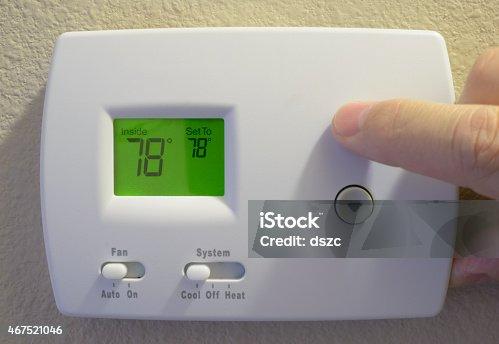
6. Strange Odors Coming From Vents or AC Unit
Air conditioning systems should produce only clean, odorless conditioned air. Any unusual smells emanating from your vents or outdoor unit indicate problems that may affect indoor air quality and system performance.
Musty or moldy odors are particularly common in Houston’s humid climate, often indicating moisture accumulation in ductwork or around evaporator coils. These conditions promote mold and bacteria growth, which can trigger allergies and respiratory issues while reducing system efficiency.
Burning smells suggest electrical problems, overheating components, or motor issues requiring immediate attention. In extreme cases, electrical problems can create fire hazards, making prompt professional inspection essential.
Chemical or refrigerant odors may indicate refrigerant leaks, which not only reduce cooling capacity but can pose health risks in enclosed spaces. Modern refrigerants are generally safe, but leaks should be repaired promptly to maintain system performance and indoor air quality.
7. Frequent System Cycling or Failure to Reach Set Temperature
Properly functioning AC systems in Houston typically run in cycles lasting 15-20 minutes, with brief off periods between cycles during peak demand. Short cycling—frequent on-off cycling lasting less than 10 minutes—or inability to reach thermostat settings indicates significant system problems.
Short cycling can result from oversized equipment, refrigerant issues, electrical problems, or failing thermostats. This inefficient operation increases energy consumption, reduces indoor comfort, and accelerates component wear, leading to premature system failure.
Systems that run continuously without reaching set temperatures may have insufficient cooling capacity, refrigerant leaks, or airflow restrictions. During Houston’s peak summer conditions, continuous operation might be normal, but systems should still maintain target temperatures within reasonable limits.
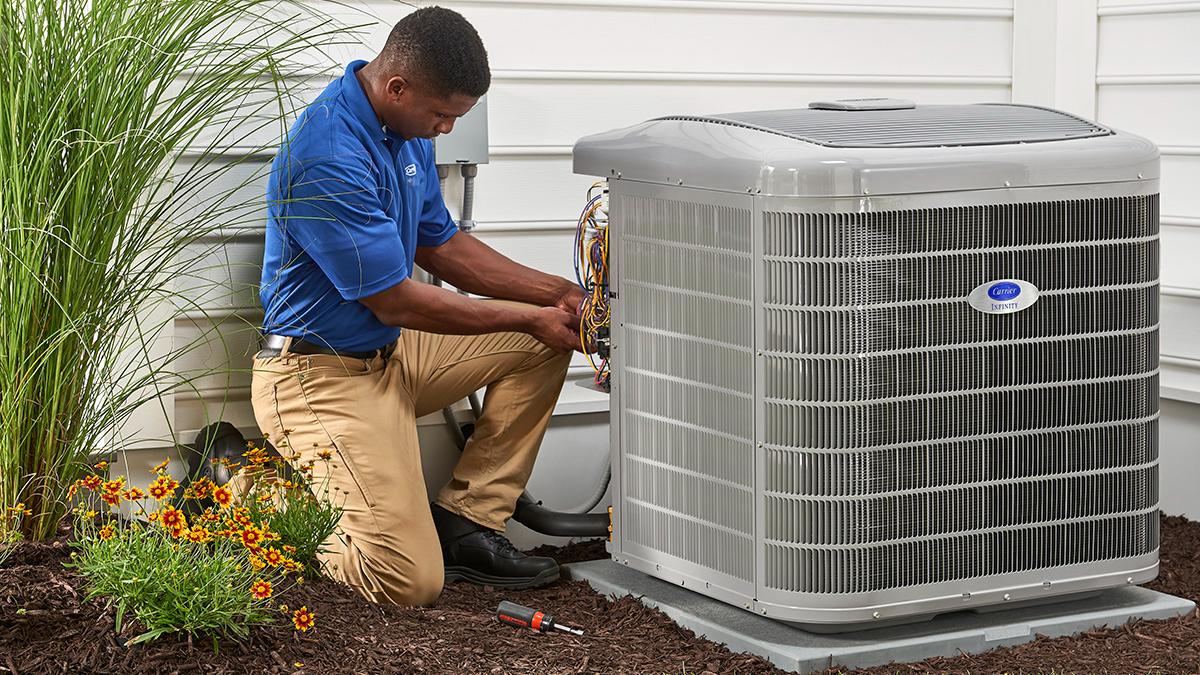
When to Call Professional AC Repair Services
While homeowners can perform basic maintenance tasks like filter replacement and vent cleaning, most AC repair work requires professional expertise and specialized tools. Licensed technicians possess the training to safely handle refrigerants, diagnose electrical problems, and repair complex mechanical components.
Contact professional AC repair services immediately if you experience:
- Complete system failure or loss of cooling
- Electrical burning smells or visible smoke
- Refrigerant leaks or chemical odors
- Ice formation on system components
- Loud mechanical noises suggesting component failure
For less urgent issues like gradual efficiency decline or minor airflow problems, schedule service within a few days to prevent problems from escalating. Early intervention typically results in simpler, less expensive repairs compared to emergency service calls.
At 75 Degree AC, our certified technicians provide comprehensive diagnostic services to identify problems accurately and recommend cost-effective solutions. We offer transparent pricing, detailed explanations of needed repairs, and warranties on all work performed.
The True Cost of Ignoring AC Warning Signs
Houston homeowners who ignore early warning signs often face significantly higher repair costs and extended periods without adequate cooling. Consider these real-world scenarios our technicians encounter regularly:
| Warning Sign Ignored | Early Repair Cost | Delayed Repair Cost | Potential Consequences |
|---|---|---|---|
| Minor refrigerant leak | $200-400 | $1,200-2,500 | Compressor failure, complete system replacement |
| Dirty evaporator coils | $150-250 | $800-1,500 | Frozen coils, compressor damage, ductwork issues |
| Worn fan motor bearings | $300-500 | $900-1,800 | Motor replacement, fan blade damage, system failure |
| Electrical connection problems | $150-300 | $600-2,000 | Component failure, fire hazard, complete rewiring needed |
Beyond direct repair costs, system failures during Houston’s peak summer months can result in additional expenses including temporary lodging, spoiled food, and emergency service premiums. Insurance claims for AC-related damage to homes or belongings can also impact future premiums and coverage availability.
Preventive Maintenance: Your Best Defense Against AC Problems
Regular preventive maintenance represents the most cost-effective strategy for avoiding major AC repairs and extending system life. Houston’s demanding climate makes annual professional maintenance particularly important, with many homeowners benefiting from bi-annual service during spring and fall seasons.
Essential maintenance tasks include:
- Monthly air filter inspection and replacement
- Annual refrigerant level checks and adjustments
- Coil cleaning to maintain optimal heat transfer
- Electrical connection inspection and tightening
- Thermostat calibration and programming optimization
- Ductwork inspection for leaks or damage
- Condensate drain cleaning to prevent moisture problems
Professional maintenance plans offered by reputable companies like 75 Degree AC typically include priority service scheduling, discounted repair rates, and comprehensive system inspections designed to identify problems before they cause failures.
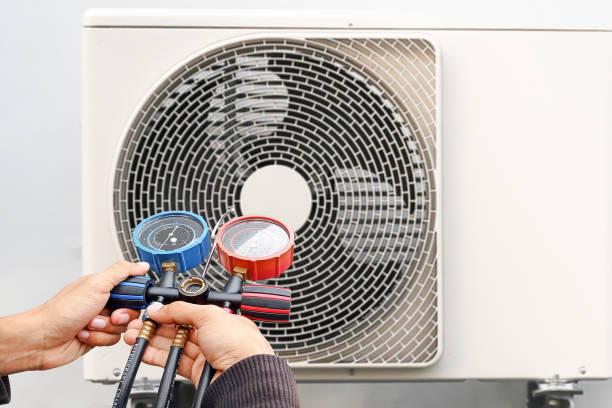
Choosing the Right AC Repair Company in Houston
When your residential AC needs repair, selecting the right service provider can significantly impact repair quality, cost, and long-term system performance. Houston’s competitive HVAC market includes numerous companies, but not all offer the same level of expertise and customer service.
Look for companies that provide:
- Licensed, certified technicians with ongoing training
- Transparent pricing with detailed written estimates
- Emergency service availability during peak seasons
- Warranties on parts and labor for repairs performed
- Local reputation and positive customer reviews
- Full service capabilities including AC installation and maintenance services
At 75 Degree AC, we’ve built our reputation on honest diagnostics, fair pricing, and reliable service for Houston homeowners since 2016. Our team provides same-day service for urgent repairs and comprehensive AC replacement services when repairs are no longer cost-effective.
Conclusion: Protecting Your Houston Home’s Comfort and Value
Recognizing these seven warning signs that your residential AC needs repair empowers you to address problems promptly, saving money and maintaining comfort throughout Houston’s challenging climate. From unusual noises and weak airflow to rising energy bills and temperature inconsistencies, early detection prevents minor issues from becoming major expenses.
Remember that professional diagnosis and repair ensure problems are resolved correctly the first time, protecting your investment and providing reliable cooling when you need it most. With Houston’s extended cooling season and extreme summer conditions, your AC system works harder than units in most other regions, making professional maintenance and prompt repair attention essential.
Don’t wait for complete system failure to address AC problems. Early intervention saves money, prevents discomfort, and extends equipment life, providing better value for your home comfort investment.
Ready to address AC problems before they become expensive emergencies? Contact 75 Degree AC at (713) 598-2737 for professional diagnosis and reliable repair services. Our certified technicians provide same-day service throughout Houston, with transparent pricing and guaranteed workmanship on every job.
Frequently Asked Questions About AC Repair Warning Signs
How often should I check my AC system for warning signs?
Houston homeowners should perform monthly visual inspections during cooling season, checking for unusual noises, ice formation, and proper airflow. Professional inspections should occur annually, with many homes benefiting from spring and fall service visits due to extended system usage.
Can I continue running my AC if I notice minor warning signs?
Minor issues like slightly reduced airflow or small temperature variations may allow continued operation, but avoid running the system if you detect ice formation, burning smells, or loud mechanical noises. When in doubt, contact professional technicians for guidance to prevent additional damage.
What’s the average cost of AC repairs in Houston?
Typical AC repair costs in Houston range from $150-500 for minor issues like thermostat problems or refrigerant top-offs, while major repairs including compressor replacement can cost $1,200-2,500. Early detection and repair generally result in lower costs compared to emergency service calls.
How do I know if my AC needs repair or complete replacement?
Systems over 10-12 years old requiring repairs costing more than 50% of replacement value should be considered for upgrade. Frequent breakdowns, rising energy bills despite repairs, and inability to maintain comfort during moderate weather often indicate replacement is more cost-effective than continued repairs.
Are there warning signs specific to Houston’s climate?
Houston’s high humidity can accelerate mold growth in ductwork and around coils, making musty odors more common. Extended runtime during summer months increases wear on electrical connections and motors. Frequent afternoon thunderstorms can also cause electrical surges affecting system components.
What should I do immediately if I smell gas around my HVAC system?
Natural gas odors near your system require immediate action: turn off the system, avoid using electrical switches or open flames, ventilate the area, and contact your gas utility company immediately. Do not attempt to diagnose or repair gas-related problems yourself—always use certified professionals for gas system work.
